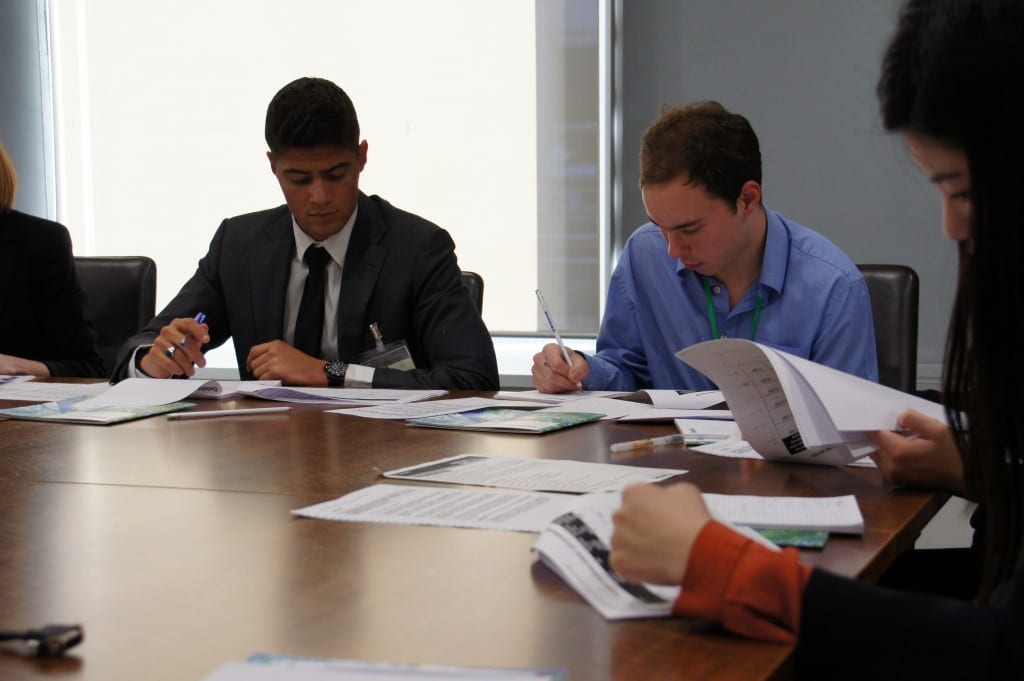A Degree in Physics – What Next?
By UCL Careers, on 15 January 2016
It is a fact that approximately 70% of all graduate jobs are open to any degree discipline. So there is a vast amount of choice when it comes to deciding what to do after your degree.
However, many students choose to enter a profession that utilises the subject knowledge that they gained during their degree. Physicists are no exception to this. In fact, at UCL about a third of undergraduates go on to study physics at masters or PhD level before launching themselves in a job – whether that is in academia or industry.
So if you really love your degree, what are the sectors that will really use your knowledge of Physics?
Here are just 5 of the areas you might consider, to show you the range of possibilities open to you.
Energy
This is a growth sector and it is expected that within the next 10 years, there will be 200,000 people working in ‘Energy & Utilities’. The UK government wants 15% of our energy to come from wind, tidal and solar power by 2020, so developing a workforce to support these areas is a priority. The nuclear industry is massive in the UK (50,000 people) and of course these is also the Oil and Gas sector. Physicists are needed for research & development roles, design engineering, data analysis roles, sales and trading roles and many more. More information: https://www.energyinst.org/home
Medicine
Medicine is an ever advancing sector. Physicists play a very important role in developing new technologies and medical procedures. The range is vast and covers the development of medical equipment such as heart valves, artificial limbs or surgical equipment. It includes nuclear medicine for the treatment of cancer and x-ray, NMR and PET scanners. And it includes developing new technologies such as nanobots to target cancer cells or blood-monitoring infrared light. More information: http://www.ipem.ac.uk
Sport and Games
This area can be broadly split into two. You could be on the design and development engineering side in sports physics. This includes looking at how to improve sports equipment such as the aerodynamics of a racing bike or better cushioning in sports shoes. Or you could be on the IT side, developing the graphics for more realistic computer games or analysing data during live sports matches. Either way, you would be part of a multi-million pound industry. More information: http://www.uksport.gov.uk/about-us/the-english-institute-of-sport
Education
There is currently a shortage of physics teachers in the UK, which is why you could get a bursary of up to £25,000 from the Department of Education if you decide to train to be a physics teacher. You would need to gain qualified teacher status (QTS) through a range of further study options. You would then decide to teach at secondary school level (11-16 years or 11-18 years), or in further education (16 years+). More information: https://getintoteaching.education.gov.uk
Nanotechnology
Whilst not a ‘sector’ in its own right, nanotechnology spans across engineering, medicine, energy, defence and much more. However, as one of the newest areas that physicists enter, it would be poor form not to mention it. Roles within nanotechnology are largely focused on research, development and design engineering. It is an exciting area for anyone who wants to be at the cutting edge of science – enhancing the energy efficiency of windows, designing medical devices, enhancing the efficiency of batteries, designing lighter and stronger sports equipment and much more. The possibilities in nanotechnology are vast and largely unknown at present. More information: https://www.london-nano.com
This isn’t an exhaustive list at all, we didn’t even mention the space industry, the environment, defence, meteorology, or science journalism. But hopefully it has given some food for thought. If you want to discuss your options, come and talk to a careers consultant at UCL Careers. Alternatively, you will find some excellent information on the Institute of Physics website: http://www.iop.org/
Visit Careers Tagged for more information on Physics careers
– Karen Barnard, Director, UCL Careers
 Close
Close


